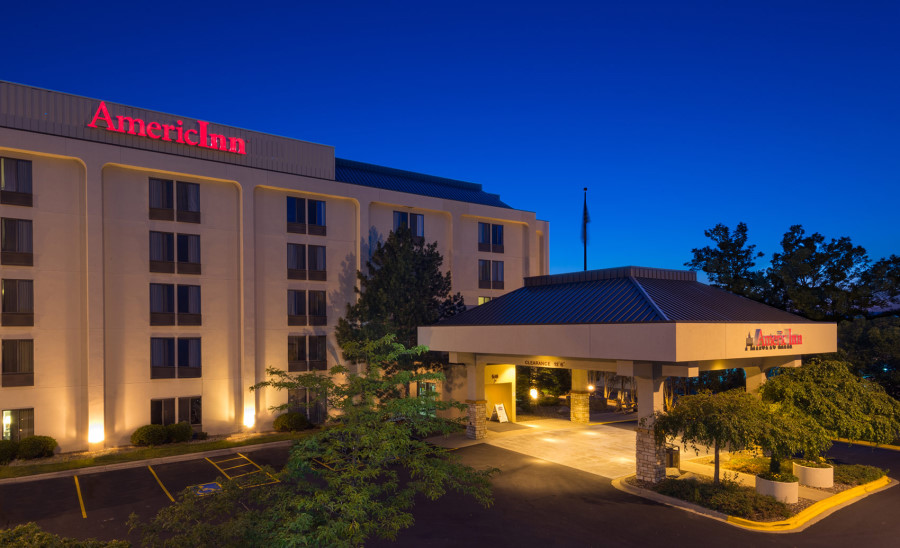AmericInn knows the future is here, and the company isn't resting on its laurels. HOTEL MANAGEMENT sat down with three of the company's executives (Paul Kirwin, president and CEO; Nasir Raja, EVP of franchise development and sales; and Mark Masuda, VP of marketing, sales and distribution) to discuss the steps AmericInn is taking to solidify its future in the hospitality sector.
1.
HOTEL MANAGEMENT: With plans to expand internationally in the future, will AmericInn be keeping its brand name abroad?
Kirwin: Today our international plans are for the Middle East and Southeast Asia, particularly India. We've recently had a strong expression of interest in China, but in my experience you don't want to start international development in China...until you have a few miles of experience over there under your shoes. In the Middle East you have to work in Arabic but in general you don't have to change the brand name. In China you have to come up with a Mandarin name, which is not the name but a derivative of the name. Otherwise no, the name is fine for where we are focused, and the countries we have selected to work with in the Middle East are countries that have a longstanding friendly relationship with the U.S. We think the name is an assist.
Book your group stay today! Meeting rooms, indoor pool access, conference centers and more! - https://t.co/EwCpIxgpyM #AmericInn
— AmericInn (@Americinn) April 22, 2016
2.
HM: Are you looking into further expansion outside of the heartland in the U.S.?
Raja: Today when I look at our pipeline, I would say most of our projects are still concentrated in our core, which is the five states of Wisconsin, Minnesota, the Dakotas and Iowa. We have 25 projects in the pipeline there, but if I look ahead my plan is to... start targeting Kansas, Nebraska, Illinois and Michigan. These are good for us because they are easy to expand our footprint and they are similar to the Midwest. We have plans for it.
3.
HM: What are you doing to further grow brand recognition outside of the heartland?
Masuda: We've heavied up our digital allocation of marketing resources for owners. It's hard for owners sometimes because they don't see the billboard or bus wrap in their town, but to be equitable we provide them more digital resources to even it out. Those are very cost effective, and are an effective medium to drive to those markets.
4.
HM: Loyalty programs are your silver bullet. What is your timeline for following in the footsteps of Hilton, Marriott and Hyatt in offering discounts to guests for direct bookings through loyalty programs?
Kirwin: I told Mark [Masuda] he has two weeks! Joking aside, one of my rules is to be the person that tells the brand where we need to go, and we have many hotels that wouldn't want to go that route because they generate a very high rate and run a very high occupancy, and the word 'discount' is sort of an anathema to them. But we recognize that if this strategy gets the sort of traction the industry thinks it will, we will have to go there. We've preliminarily talked about it. If in six months the brands drop it then we didn't need to do it, but if it sticks we have to be there quickly.

5.
HM: Is Airbnb poaching guests from AmericInn to the same degree that it is the other brands?
Kirwin: No. The research is clear that it's an urban phenomenon. At the same time, I believe that when you look at the ambitions of their CEO and what they've achieved with millennials we would be foolish to say, 'Oh that will never come to our back yard.' I'm proud of what the American Hotel & Lodging Association has done in response to this, and our industry has shown that when we are united on an issue on solid ground we can achieve things politically. It's easy for our owners to say, 'Oh that's not my problem,' but that's what we said once about the [online travel agencies].
6.
HM: How has the push for increased minimum wages impacted you?
Kirwin: It has affected our restaurant business more. We take issue in only two situations. We are against hotel-only wage increases, which we haven't seen in the markets we operate in, but secondly, we take issue with significant minimum wage increases in states where there is no tip credit. Here in Minnesota we were strong supporters for the effort to get tip credit in place, and now we have a significant disparity between front-of-the-house and back-of-the-house wages. But we lost that battle, we don't have any sense it's going to change any time soon. We support the cause, we think it's right, but if it doesn't work out we'll live with it.
7.
HM: What's your stance on our current spot in the cycle and how group business is growing while business travel is slowing?
Kirwin: We believe that 2016 is going to be a really good year. A lot of our hotels are quite dependent on the summer season, and with employment high and gas prices low that will turn out well. If the downturn in business activity that people were predicting would take place to months ago isn't as much as we first thought, and many are already saying it isn't, then I think we're fine for 2017 and 2018. One of the benefits of low annual GDP growth is a longer cycle, but on the other hand if things in China or Europe get worse then those things weigh on commercial activity. The leisure side tends to last longer than the commercial side. We could be in that phase now, but I don't think so because they are saying companies aren't doing as badly as we thought. The way things are going I remain optimistic.
